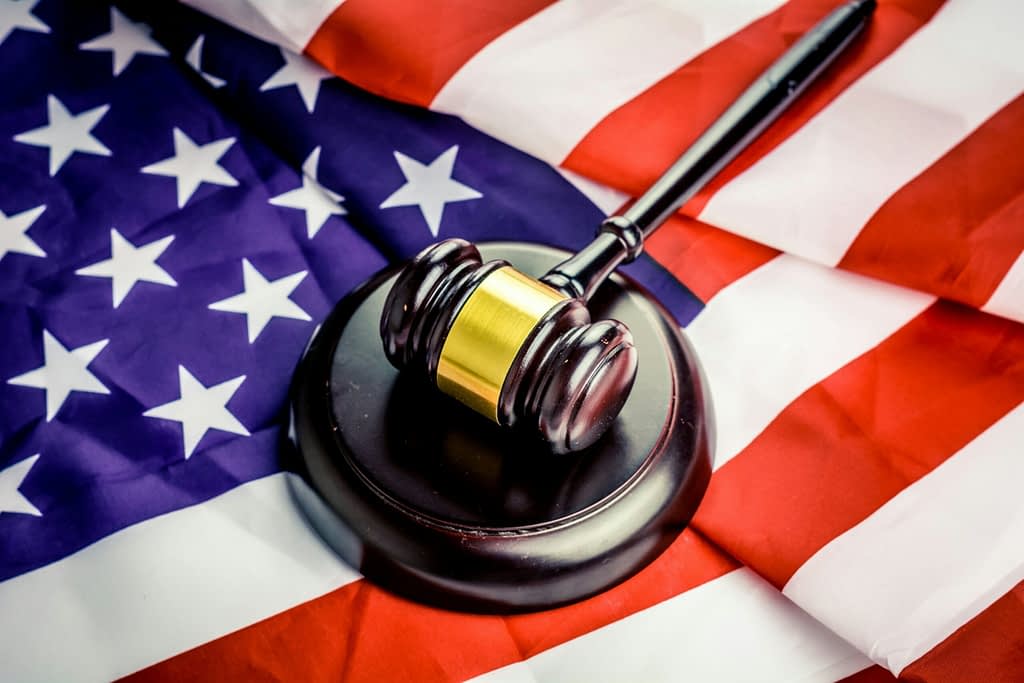Twelve American states have filed a lawsuit against President Donald Trump and his administration at the U.S. Court of International Trade in New York, seeking to block new tariffs they describe as illegal, constitutionally problematic, and economically harmful to American consumers and businesses.
Legal Basis of the Lawsuit
- The plaintiff states are challenging Trump’s authority to arbitrarily impose tariffs under the International Emergency Economic Powers Act (IEEPA).
- The lawsuit strongly argues that the power to impose taxes and tariffs belongs exclusively to Congress according to the Constitution, not the president, which is a fundamental element of the constitutional separation of powers.
- “In the nearly five decades since IEEPA was enacted, no other President has imposed tariffs based on the existence of any national emergency, despite global anti-narcotics campaigns spearheaded by the United States and longstanding trade deficits,” the lawsuit explicitly states.
- The lawsuit contends that the president lacks the authority to arbitrarily change tariff rates at his discretion without proper legislative process.
Scope of Trump’s Tariffs
- Since returning to office, Trump has issued a series of executive orders implementing an unprecedented range of tariffs on foreign imports.
- Most significant are the 145% tariffs on products made in China, representing a dramatic increase from previous tariff rates.
- On products from Canada and Mexico, long-standing U.S. trade partners in the North American region, he imposed 25% tariffs.
- On imports from most other countries around the world, he implemented a flat 10% tariff regardless of existing trade agreements or specific economic relationships.
Response from State Attorneys General
New York Attorney General Letitia James unequivocally stated: “The president does not have the power to raise taxes on a whim, but that’s exactly what President Trump has been doing with these tariffs.” Her position emphasizes the key argument that tariffs are a form of taxation, which falls under the legislative, not executive, authority.
Arizona Attorney General Kris Mayes expressed herself even more sharply, calling Trump’s tariff plan “insane” and adding: “Arizona cannot afford President Trump’s massive tax increase. No matter what the White House claims, tariffs are a tax that will be passed on to Arizona consumers.” This statement underscores the economic impact of tariffs on ordinary citizens.
Connecticut Attorney General William Tong also emphasized specific impacts, stating that “Trump’s lawless and chaotic tariffs are a massive tax on Connecticut families and a disaster for Connecticut businesses and jobs.”
Similar Legal Actions and Broader Context
- Less than two weeks before this collective lawsuit, five small businesses filed a similar legal action, also challenging the legality of the new tariffs on the same legal grounds.
- However, a three-judge panel has already denied these plaintiffs’ motion for a temporary restraining order that would suspend Trump’s new tariffs pending the final resolution of the case.
- California Governor Gavin Newsom, a Democrat, also separately sued the Trump administration in the U.S. District Court for the Northern District of California, claiming that as the largest importing state, it could lose billions of dollars in revenue.
- These legal actions illustrate growing resistance to Trump’s protectionist trade policy from both state officials and the private sector.
White House spokesperson Kush Desai, responding to Newsom’s lawsuit, stated that “the Trump administration remains committed to addressing this national emergency that’s decimating America’s industries and leaving our workers behind with every tool at our disposal, from tariffs to negotiations.” This statement suggests that the administration considers the trade deficit and job losses sufficient reason to declare a state of national emergency.
Lawsuit Demands and Potential Impacts
The plaintiff states are asking the court to explicitly declare the tariffs illegal, prohibit government agencies and officials from enforcing them, and cancel all measures implementing them. If successful, this lawsuit could significantly limit presidential powers in trade policy and necessitate greater Congressional involvement in tariff decision-making.




